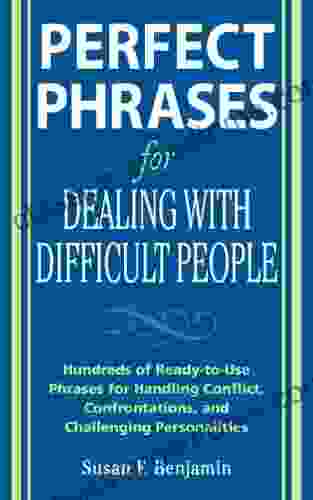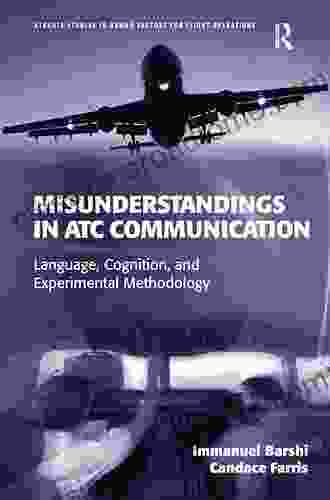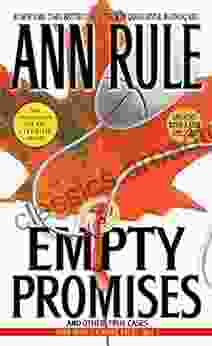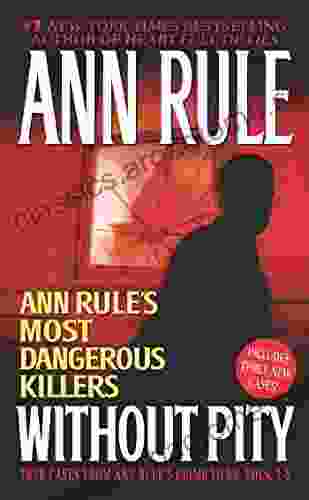Conflict is an inevitable part of life, whether it's at work, at home, or in social situations. While it can be uncomfortable and even disruptive, it also presents an opportunity for growth and understanding. The key is to approach conflict in a constructive and respectful manner, and to have the right tools and language to navigate it effectively.
In this comprehensive guide, we provide you with a treasure trove of ready-to-use phrases that will empower you to handle conflict confidently, defuse tensions, and build stronger relationships.
4.3 out of 5
| Language | : | English |
| File size | : | 709 KB |
| Text-to-Speech | : | Enabled |
| Screen Reader | : | Supported |
| Enhanced typesetting | : | Enabled |
| Word Wise | : | Enabled |
| Print length | : | 241 pages |
Emphasizing Empathy
One of the most important aspects of conflict resolution is to demonstrate empathy and understanding towards the other person's perspective. Use phrases that convey your recognition of their feelings and experiences, such as:
- "I can understand why you feel that way."
- "It sounds like you're feeling frustrated."
- "I appreciate your willingness to share your perspective."
Active Listening
Active listening is crucial for effective communication during conflict. Show that you're paying attention and trying to understand by using phrases like:
- "I'm listening to you."
- "Could you please clarify that point?"
- "I'm trying to see things from your perspective."
Setting Boundaries
In conflict, it's important to set clear boundaries while still maintaining respect for the other person. Use phrases that establish your limits, such as:
- "I'm not comfortable with that approach."
- "I need you to respect my decision."
- "I'm willing to listen, but I won't tolerate disrespectful behavior."
Facilitating Compromise
Compromise is a valuable tool for resolving conflict. Use phrases that encourage a mutually acceptable solution, such as:
- "Let's work together to find a compromise."
- "I'm willing to concede on some points if you are."
- "Can we explore alternative options that satisfy both of our needs?"
Apologizing and Forgiving
Sometimes, apologies and forgiveness are necessary to heal wounds and move forward. Use phrases that express remorse and a desire for reconciliation, such as:
- "I'm sorry for my part in this conflict."
- "I forgive you for what happened."
- "Let's put the past behind us and focus on the future."
Additional Tips
In addition to these ready-to-use phrases, keep the following tips in mind for effective conflict resolution:
- Stay calm and respectful, even when emotions run high.
- Focus on finding a solution, not winning an argument.
- Be willing to compromise and negotiate.
- Seek support from a trusted third party if necessary.
- Don't avoid or ignore conflict; address it promptly and respectfully.
Mastering the art of conflict resolution is a valuable life skill that can enhance relationships, build bridges, and foster a more harmonious workplace and social environment. The ready-to-use phrases provided in this guide will equip you with the language you need to navigate conflict confidently and effectively.
Remember, conflict is not something to be feared or avoided, but rather an opportunity for growth and connection. By approaching it with empathy, active listening, clear boundaries, and a willingness to compromise, you can transform conflicts into positive outcomes that strengthen your relationships and improve your life.


























































































